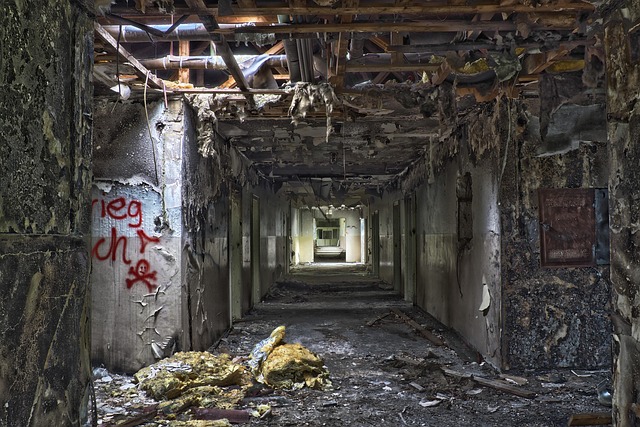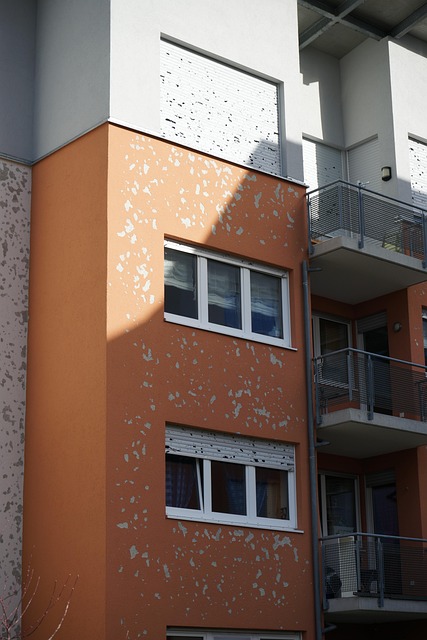Selling a house with fire damage in Houston requires specialized knowledge of the local real estate market and unique considerations for damaged properties. Property inspectors must assess exterior signs of damage, interior soot and smoke damage, structural weaknesses, and affected personal belongings. Insurance plays a crucial role in determining property value post-fire, potentially differing from market value. Homeowners must adhere to stringent local building codes and regulations set by the Building Department for repairs and safe sale. Strategic navigation involves thorough damage assessment, prioritizing safety, enhancing curb appeal, deep cleaning, and considering upgrades to attract buyers looking to purchase a house with fire damage in Houston.
“In the aftermath of a fire, property valuation becomes a critical step for Houston homeowners. This comprehensive guide navigates the intricate process of post-fire property assessment, offering insights into understanding local dynamics unique to Houston. From identifying fire damage during home inspections to navigating insurance roles and local regulations, this article equips you with essential strategies. If you’re considering selling a house with fire damage in Houston, delve into these expert tips for a successful transition.”
- Understanding Post-Fire Property Valuation in Houston
- Assessing Fire Damage: What to Look For in a Home Inspection
- The Role of Insurance in the Property Valuation Process
- Local Regulations and Building Codes After a Fire
- Strategies for Selling a House with Fire Damage in Houston
Understanding Post-Fire Property Valuation in Houston

After a fire, property valuation in Houston becomes a complex process that requires expertise and specialized knowledge. When a home suffers fire damage, it’s natural for homeowners to wonder how this event will impact their property’s value. This is especially true for those looking to sell a house with fire damage Houston. The reality is, fire damage can significantly alter a property’s market value, often in unexpected ways.
Houston’s real estate market, known for its dynamism, has unique considerations when dealing with post-fire properties. Factors such as the extent of damage, the location of the property, and the local housing market trends all play crucial roles in determining the new value. Homeowners must understand that a fire doesn’t automatically devalue their property; instead, it changes the landscape for potential buyers and sellers. Proper valuation involves meticulous inspection, accurate assessment of repairs needed, and a deep understanding of Houston’s real estate dynamics to ensure a fair price for both parties involved in selling a house with fire damage Houston.
Assessing Fire Damage: What to Look For in a Home Inspection

When assessing fire damage in a home, Houston property inspectors should look for several key indicators to provide an accurate valuation after the fire. The first step is to visually inspect the exterior of the property for visible signs of smoke, water, or fire damage. This includes checking for charring on walls, ceilings, and structural elements as well as assessing any visible water damage from firefighting efforts.
Inside the home, inspectors should carefully examine the extent of the soot and smoke damage, paying special attention to areas like kitchens, chimneys, and air ducts that are particularly vulnerable to fire spread. They should also look for potential structural issues such as weakened walls, floors, or roofs, which might require additional repairs beyond cosmetic ones. Lastly, assessing the value of personal belongings lost or damaged in the fire is crucial, as this can significantly impact the overall property valuation when selling a house with fire damage in Houston.
The Role of Insurance in the Property Valuation Process

After a fire, the process of selling a house with fire damage in Houston involves several key players, and insurance is a critical one. When it comes to post-fire property valuation, insurance companies often play a significant role. They will assess the extent of the damage, taking into account factors like the size of the fire, the type of materials affected, and the overall repair costs. This assessment directly influences the insured value of the property, which is essential for determining compensation during the claims process.
For homeowners looking to sell their fire-damaged property in Houston, understanding this dynamic is crucial. While insurance may provide financial relief, it’s important to recognize that the insured value might not always align with the market value of a home after a fire. This can create complexities when trying to sell, as buyers will likely have questions about repairs, potential hidden damage, and the overall condition of the property.
Local Regulations and Building Codes After a Fire

After a fire, property owners in Houston must navigate complex local regulations and building codes to ensure safe and compliant repairs before selling their damaged homes. The city’s Building Department plays a crucial role in inspecting properties and enforcing safety standards, especially when it comes to structural integrity and hazard mitigation. These regulations are designed to protect homeowners and potential buyers from further risks associated with fire damage.
Houston’s building codes specify minimum requirements for reconstruction, focusing on materials, electrical systems, plumbing, and overall structural safety. Owners selling a house with fire damage must adhere to these guidelines during the repair process. This ensures that any renovations or repairs meet the necessary standards, making the property safe for occupation and increasing its market value. For those considering buying a home in Houston with previous fire damage, understanding these local regulations is essential to ensure a smooth transaction.
Strategies for Selling a House with Fire Damage in Houston

Selling a house with fire damage in Houston can be challenging, but with the right strategies, it’s possible to navigate this process successfully. The first step is to thoroughly assess the extent of the damage. Engage professional inspectors who can provide an accurate evaluation, identifying both visible and hidden hazards. This step is crucial as it will determine the scope of repairs needed and help set realistic expectations for potential buyers.
Once you have a clear understanding of the damage, focus on repairing and restoring your property to its pre-fire condition or even beyond. Prioritize safety and ensure all hazardous materials are removed. Enhance curb appeal by taking care of exterior repairs and landscaping. Internally, deep clean and consider upgrading fixtures and finishes to create an inviting space. These efforts will not only make your home more attractive to buyers but also demonstrate your commitment to providing a sound investment.
Post-fire property valuation in Houston involves a multifaceted approach that includes understanding local regulations, assessing damage, and navigating insurance claims. When selling a house with fire damage in Houston, it’s crucial to be aware of the specific strategies outlined in this article. By thoroughly inspecting the property, leveraging insurance benefits, and adhering to building codes, you can ensure a fair and efficient process for selling your home in this unique context. Remember, knowledgeable professionals can guide you through every step, making the transition smoother while maximising your options in the Houston real estate market.






